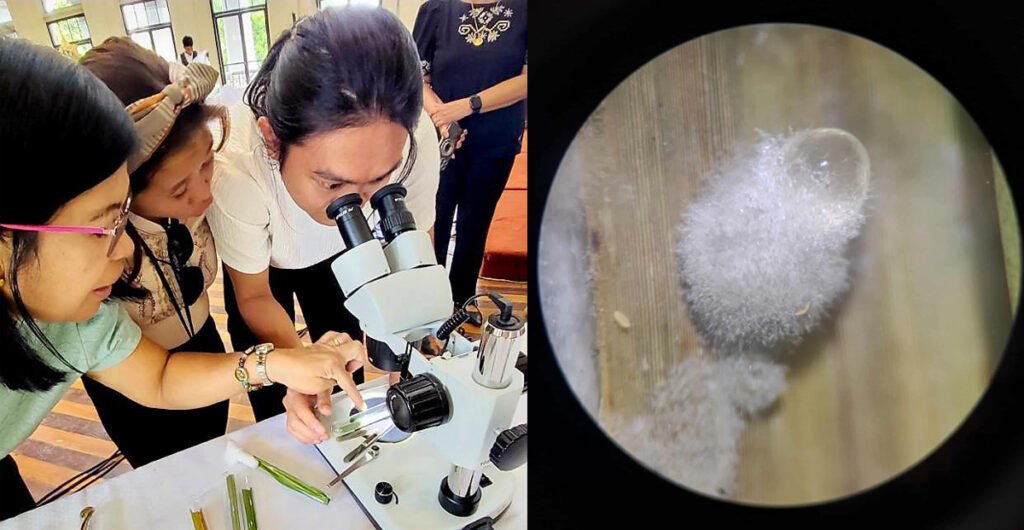• GILBERT P. BAYORAN
The Sugar Regulatory Administration (SRA) is working on the mass production of entomo-pathogenic fungi discovered in Capiz to help eliminate the red-striped soft scale insect (RSSI) attacking sugarcane farms in Negros and Panay.
SRA Administrator Pablo Luis Azcona said on Monday (July 14) they are studying the multiplication of two beneficial fungi, Metarhizium anisopliae and Beauveria bassiana, as a long-term solution to the RSSI problem.
“So far, the fungus aggressively attacked and killed the adult RSSI, including its eggs,” Azcona said.

The SRA chief gave a message during the RSSI training-workshop and management held at the Provincial Capitol Social Hall in Bacolod City.
The RSSI infestation has already affected 2,932.28 hectares of sugarcane fields, majority of which are in Negros Occidental, affecting 1,612 farmers, according to the SRA report.
Azcona, however, clarified that only a small percentage of these farms were severely affected.
“It’s a big breakthrough. It is a natural fungus in sugarcane, not chemicals. We hope to multiply it to a point, where we can give it for free to the farmers for spraying,” he added.
“We can actually teach the farmers’ associations, the local government units (LGUs) to replicate it, to multiply it. It’s easy to do, it’s a natural-occurring fungus in sugarcane,” Azcona said
Based on a study, SRA said that RSSI could reduce the sugar content of infested canes by almost 50 percent.
The SRA also reiterated its call for the RSSI affected LGUs to declare a state of emergency in their respective areas for them to use it as a basis in fast tracking the procurement of pesticides.
The Department of Agriculture (DA) has earmarked P10 million while the SRA has allocated P5 million for the purchase of pesticides, Azcona said.
In his opening statement during the activity, Governor Eugenio Jose Lacson lauded the SRA for taking the lead and continuing to find sustainable ways to support the sugar industry.
“While the sugar industry has been the key driver of the Negrense economy and identity, yet we cannot deny that it has also faced a long history of challenges and difficulties, be it from market volatility, climate impacts, or threats from emerging pests such as the RSSI,” he said.
“But I have always believed that the resilience, dedication, and ingenuity of our farmers, institutions and communities will see us through,” Lacson said.
The training-workshop was also attended by Engr. Jose Albert Barrogo, regional director of DA-Negros Island Region, and Paul Curran, chairman of the Hawaiian-Philippine Company, who is actively involved into doing research against RSSI infestation and discovery of fungus. | GB




